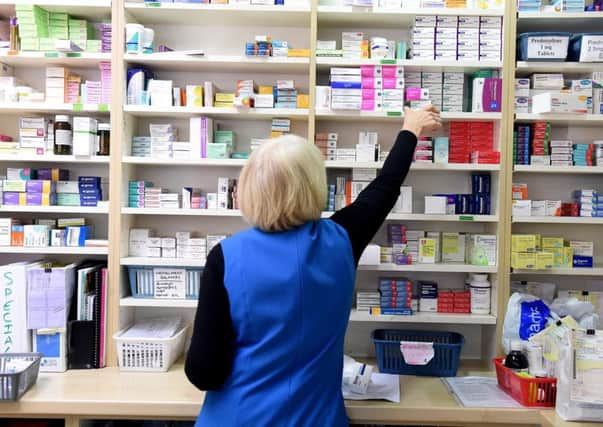Some important questions to '˜ask your pharmacist' '“ Philip Galt


New research shows that many people underestimate the risks of taking medicines inappropriately. A survey carried out for the National Pharmacy Association in September showed that 40 per cent of people in Scotland believe that the information leaflets provided in medicines boxes exaggerate the risks of side effects.
Full and frank conversations with your local pharmacist will help you get the best use from your medicines and minimise your risk of harm. Did you know that at least six per cent of emergency re-admissions to hospital are caused by avoidable adverse reactions to medicines?
Advertisement
Hide AdAdvertisement
Hide AdFor many of us, being given the time and space to talk about your medication is a welcome opportunity in a world where many medical professionals are under constant time pressure. Your local community pharmacist will provide a vital listening ear and wealth of experience that can be accessed without appointment, often minutes from your own front door.
Although not everyone feels comfortable discussing health-related matters, we know the importance of medicines in preventing premature death, curing illness and improving quality of life but we also know the risks they can sometimes bring.
Over the coming months, you may notice your pharmacist asking more questions when dispensing your medicines and, in turn, we would encourage you to remember these five simple tips for communicating effectively with your pharmacist:
1, Feel free to ask your pharmacist anything at all about your medicines, your health and well-being; if it’s important to you, it’s important to us. To be safer, it is better to reveal too much information than not enough, so bring up problems even if your doctor or pharmacist hasn’t asked about them.
2, Check anything with your doctor or pharmacist that appears to be unclear about the advice they have given you; one way is to repeat what you think the pharmacist means in your own words and ask, “Is this correct”? If you are still uncertain when you get home, talk to the pharmacist again.
3, If you think the medicines you have been supplied with, or the advice and instructions that have come with them, are not right for you, say so. The doctor or pharmacist will not be offended and should welcome the opportunity to reassure you, to clarify information, or to discuss alternatives.
4, If you are in the pharmacy to get treatment for a minor ailment, be clear about your symptoms – what exactly are they, how long have you had them, do they affect your daily activities? Answer any questions asked by pharmacy staff accurately and fully, so that the pharmacist can be sure that the medicine is safe for you and that your symptoms don’t indicate a serious underlying health problem.
5, If you want to talk to the pharmacist in more depth about your medicines, ask if you are eligible for one of the free-of-charge NHS medicines advice services available in most pharmacies, designed to help you get the most out of your medicines.
Advertisement
Hide AdAdvertisement
Hide AdAs pharmacists, we have a privileged role in the heart of the communities we serve and have a duty to take the time to listen and understand what matters most to our patients.
We look forward to supporting Ask Your Pharmacist Week and helping to deliver a constantly improving level of patient care in the community. #talkmeds #AskYourPharmacist
Philip Galt is a board member of the National Pharmacy Association and superintendent pharmacist of Lindsay & Gilmour
